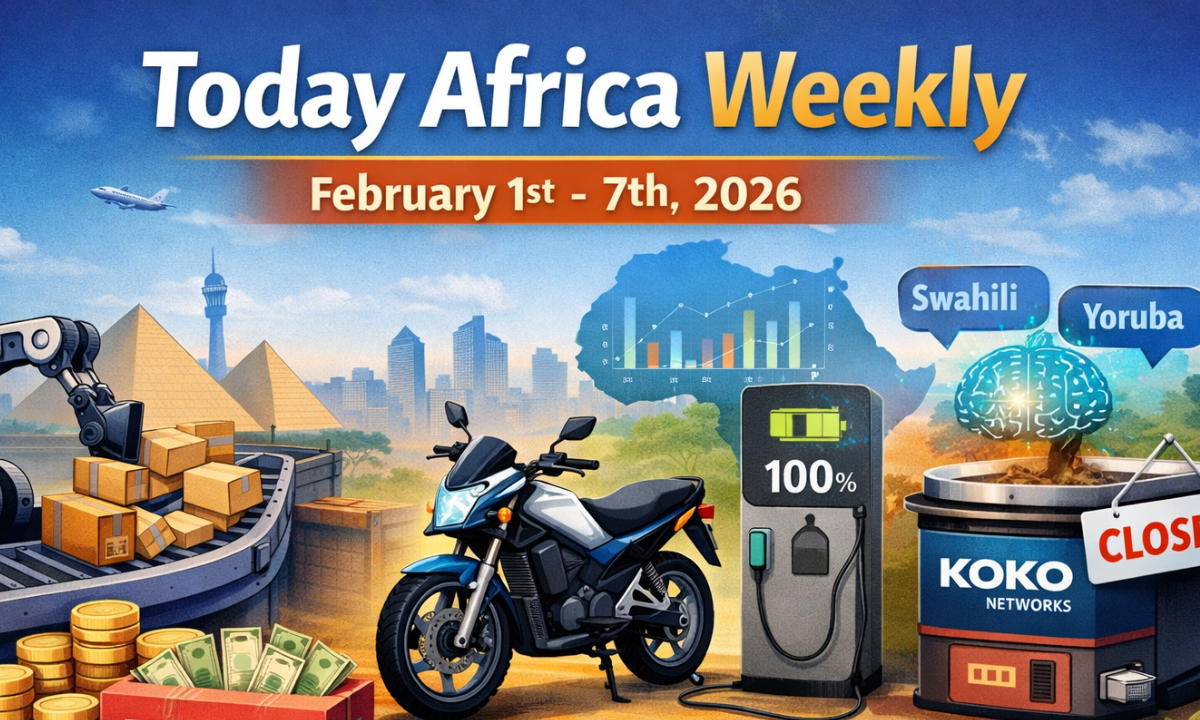Dr Ngozi Okonjo-Iweala stands as one of the most influential figures in global economic policy. Known for her work as a two-time Minister of Finance in Nigeria, her contributions to the World Bank, and her historic appointment as the first African and first woman Director-General of the World Trade Organization (WTO).
Ngozi Okonjo-Iweala Biography
Born on June 13, 1954, in Ogwashi-Ukwu, Delta State, Nigeria, Ngozi Okonjo-Iweala hails from a royal family.
Her father, Chukwuka Okonjo, was a professor of economics and the Obi (king) of Ogwashi-Ukwu, giving her a deep-rooted connection to both academia and traditional leadership.
Her mother, Kamene Okonjo, was also a respected academic and administrator. This intellectual environment laid the foundation for Ngozi’s early interest in economics and development.
Education
Okonjo-Iweala’s educational journey began in Nigeria, where she attended Queen’s School, Enugu, and later, St. Anne’s School, Molete, Ibadan.
She excelled academically, earning a scholarship to study at Harvard University in the United States. She graduated magna cum laude from Harvard in 1976 with an A.B. in Economics.
Her education continued at the Massachusetts Institute of Technology (MIT), where she earned a PhD in Regional Economics and Development in 1981.
Her dissertation focused on credit policy, rural financial markets, and Nigeria’s agricultural development, a topic that would foreshadow her career focus on development economics.
Early career at the World Bank
After completing her doctorate, Okonjo-Iweala joined the World Bank in 1982 as a development economist.
Her early years at the institution were spent on economic research and policy-making that targeted poverty reduction and sustainable development. She worked in various capacities, rising through the ranks to become one of the most respected voices on economic reform in developing countries.

During her tenure at the World Bank, Okonjo-Iweala focused on projects related to agricultural development, infrastructure, and health.
These sectors were critical for the economic stability and growth of developing nations, and she was instrumental in shaping policies that enhanced poverty alleviation and sustainable development.
Her time at the World Bank not only deepened her expertise in global economics but also allowed her to influence international economic policy in a way that directly benefited developing nations, especially in Africa.
In 2000, after nearly two decades at the World Bank, Okonjo-Iweala was appointed as Vice President and Corporate Secretary, a position that marked her as a key player in the bank’s executive leadership.
She played a crucial role in overseeing the institution’s governance and operations, further enhancing her reputation as a skilled economist and diplomat.
First tenure as Nigeria’s Minister of Finance (2003–2006)
In 2003, Okonjo-Iweala was appointed Nigeria’s Minister of Finance by then-President Olusegun Obasanjo, becoming the first woman to hold the position in Nigeria.
Her tenure marked a period of profound economic reform aimed at stabilizing Nigeria’s economy, reducing debt, and improving transparency in government spending.
Read Also: Mama Ngina Kenyatta, the Richest Woman in Kenya
One of her most significant achievements during this period was leading negotiations with the Paris Club of Creditors, which resulted in an unprecedented debt relief package for Nigeria.
The country secured a deal that wiped out $18 billion of its $30 billion debt and became one of the first African countries to successfully negotiate such a massive reduction. This achievement freed up significant resources for investment in key sectors like education, health, and infrastructure.
Ngozi Okonjo-Iweala also introduced measures to combat corruption and enhance transparency in public finances. She implemented the Fiscal Responsibility Act and the Government Integrated Financial Management System, which helped streamline government expenditures and reduce waste.
Her emphasis on accountability earned her both national and international praise but also attracted political opposition, leading to her resignation in 2006.
Return to the World Bank
After her first tenure as Finance Minister, Okonjo-Iweala returned to the World Bank, where she was appointed as Managing Director in 2007.
In this role, she was responsible for overseeing the World Bank’s operations in Africa, South Asia, Europe, and Central Asia. Her focus remained on poverty alleviation, economic reform, and development policy, but she also played a significant role in global crisis management.
During the 2008 global financial crisis, Ngozi Okonjo-Iweala was at the forefront of the World Bank’s response, working to support vulnerable countries that were hit hardest by the downturn.
Her leadership in coordinating relief efforts and supporting economic recovery plans for developing nations reinforced her reputation as a global leader in economic development.
Second tenure as Nigeria’s Minister of Finance (2011–2015)
In 2011, under the administration of President Goodluck Jonathan, Okonjo-Iweala returned to Nigeria as Minister of Finance and Coordinating Minister for the Economy.
This dual role gave her unprecedented authority to oversee Nigeria’s economic policies and reforms. Her return was greeted with optimism, as many expected her to bring the same level of reform that marked her first tenure.
One of her most notable achievements during this period was the implementation of the Nigeria Sovereign Investment Authority (NSIA), which managed the country’s Sovereign Wealth Fund. This initiative was designed to ensure the prudent management of Nigeria’s oil revenues and to save for future generations, while also funding critical infrastructure projects.

Ngozi Okonjo-Iweala also worked to diversify Nigeria’s economy away from its reliance on oil. She championed policies that promoted agriculture, manufacturing, and other non-oil sectors. Her reforms led to the rebasing of Nigeria’s Gross Domestic Product (GDP) in 2014, which revealed that the country had become the largest economy in Africa.
Despite these successes, Okonjo-Iweala faced significant challenges during her second tenure. The drop in global oil prices strained Nigeria’s finances, and she had to manage the country’s budget amid falling revenues.
Additionally, political resistance and opposition to her anti-corruption measures led to public attacks on her credibility, particularly surrounding the controversial fuel subsidy removal policy in 2012.
Despite these challenges, she remained committed to pushing through reforms that would have long-term benefits for Nigeria’s economy.
Candidacy for World Bank Presidency
In 2012, Okonjo-Iweala made a historic bid to become the President of the World Bank. Although she ultimately did not win the position. Her candidacy was notable for being the first time an African woman had been considered for the role.
Her candidacy received widespread support from African nations and other developing countries. And endorsements from prominent global leaders.
While she did not secure the presidency, her campaign highlighted the need for greater representation of developing countries in the leadership of international financial institutions.
Director-General of the World Trade Organization (WTO)
In March 2021, Ngozi Okonjo-Iweala achieved another historic milestone when she was appointed as the Director-General of the World Trade Organization (WTO). Becoming the first woman and the first African to hold the position.
Her appointment came at a critical time for the global economy, which was grappling with the economic fallout of the COVID-19 pandemic. Rising trade tensions and the need for reform in the global trading system.
As Director-General, Okonjo-Iweala has prioritized the need for a more inclusive and fair global trading system. She has called for reforms that address the needs of developing countries, particularly in areas such as agricultural trade, intellectual property rights, and global supply chains.
She has also focused on the WTO’s role in addressing global challenges like climate change and public health, emphasizing the need for trade policies that support sustainable development.
One of the most pressing issues on Okonjo-Iweala’s agenda has been the global vaccine distribution efforts in response to COVID-19. She has advocated for equitable access to vaccines, particularly for developing countries.
She has worked to bridge the gap between wealthy nations and those that are struggling to secure vaccines. Her leadership has been instrumental in advancing discussions on trade-related aspects of intellectual property rights (TRIPS) and the role of the WTO in pandemic recovery.

Dr Ngozi Okonjo-Iweala Family & Honours
Ngozi Okonjo-Iweala is married to Dr. Ikemba Iweala, a neurosurgeon, and they have four children together, including Uzodinma Iweala, a well-known author and medical doctor.
Her numerous achievements have earned her recognition from around the world. She has received honorary degrees from several prestigious institutions. This include Yale University, Brown University, and Trinity College, Dublin. Okonjo-Iweala has also been featured on various lists of the world’s most powerful and influential women, including Forbes’ list of the World’s 100 Most Powerful Women.
Read Also: Wendy Ackerman: Non-Executive Director of Pick n Pay Holdings Limited
In 2020, Time magazine included her in its list of the 100 most influential people in the world, recognizing her impact on global economic policy and her leadership at the WTO.
Dr Ngozi Okonjo-Iweala Net Worth
Dr Ngozi Okonjo-Iweala net worth is estimated to be around $5 million to $10 million. This wealth is accumulated from her extensive career as an economist, development expert, and global leader.
Her income is from both public sector roles and private sector engagements. Including speaking engagements, board positions, and advisory roles for major international organizations.
As a high-profile global leader, she has served on the boards of several organizations and corporations, such as –
- Standard Chartered Bank
- Global Alliance for Vaccines and Immunization (GAVI)
It’s important to note that while Dr Ngozi Okonjo-Iweala has accumulated significant wealth through her various professional endeavors. Her primary focus are:
- Development
- Poverty reduction
- Promoting economic reforms in developing countries
Awards and Recognition of Dr Ngozi Okonjo-Iweala
Here is a summary of the awards and recognitions received by Ngozi Okonjo-Iweala:
- Forbes’ List of the World’s 100 Most Powerful Women
- Forbes Africa Person of the Year (2020)
- Time Magazine’s 100 Most Influential People (2021)
- Yale University Honorary Doctorate (2015)
- Harvard University Distinguished Service Award (2015)
- (Africa Investor) Ai Capital Markets Personality of the Year (2014)
- Financial Times’ 25 Most Influential Women (2015)
- African Development Bank’s African of the Year (2020)
- EITI Chairperson’s Award (2016)
- Global Finance Minister of the Year (2005)
- Foreign Policy’s Top 100 Global Thinkers
- David Rockefeller Bridging Leadership Award (2017)
- Global Leadership Award (2020)
- Honorary Degrees from Global Institutions:
- Yale University
- Brown University
- Trinity College, Dublin
- University of Pennsylvania
- Tel Aviv University
Her Legacy and Impact
Ngozi Okonjo-Iweala’s life and career reflect a deep commitment to improving the lives of people in developing nations, particularly in Africa. Her work in economic reform, poverty reduction, and global trade has had a lasting impact on Nigeria and the world.

Through her leadership positions at the World Bank, Nigerian government, and WTO, she has been a powerful advocate for economic policies that promote inclusivity, transparency, and sustainability.
Ngozi Okonjo-Iweala’s legacy goes beyond her professional achievements. She has proved that women—especially African women—can lead and excel in global institutions traditionally dominated by men. Her story continues to inspire future generations of economists, policymakers, and leaders across the world.
Conclusion
Ngozi Okonjo-Iweala’s life is a testament to resilience, intellectual brilliance, and an unwavering commitment to making the world a better place.
From her early days in Nigeria to her current role at the WTO, she has consistently fought for economic reforms that uplift the most vulnerable. Her career reflects not only personal success but also her deep dedication to the cause of global development and equity.
Today, she remains one of the most respected voices in the international economic community. And her work will undoubtedly continue to shape the global economy for years to come.
Frequently Asked Questions
1. Where is Dr Ngozi Okonjo-Iweala from?
Dr Ngozi Okonjo-Iweala’s birth place is Ogwashi-Ukwu, a town in Delta State, Nigeria. She is married to Dr. Ikemba Iweala, a neurosurgeon from Anambra State and they have four children together.
2. Who is the husband of Ngozi Okonjo-Iweala?
Dr Ngozi Okonjo-Iweala’s husband is Dr. Ikemba Iweala, a neurosurgeon.
3. Which state is Ngozi Okonjo-Iweala from?
Dr Ngozi Okonjo-Iweala is from Delta State but married to an Anambra man.
References
Leave a comment below and follow us on social media for more tips and updates:
- Facebook: Today Africa
- Instagram: Today Africa
- Twitter: Today Africa
- LinkedIn: Today Africa
- YouTube: Today Africa Studio







![Biography of Tony Elumelu [Investor, Entrepreneur, & Philanthropist]](https://todayafrica.co/wp-content/uploads/2023/12/Blue-Simple-Dad-Appreciation-Facebook-Post-1200-×-720-px-7-1.png)








